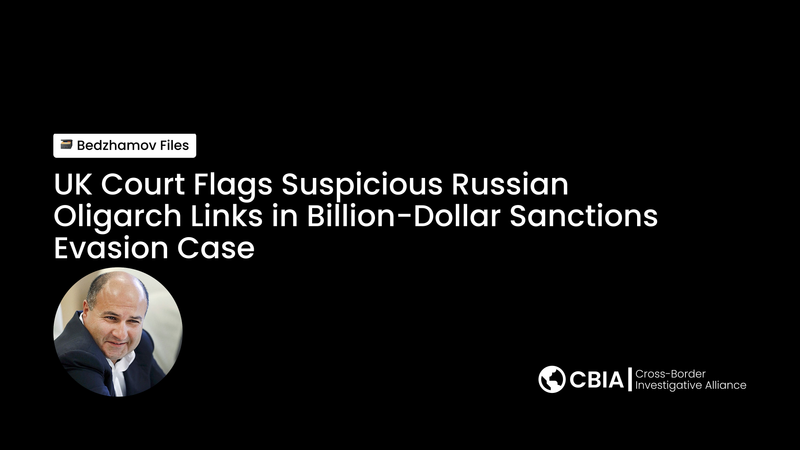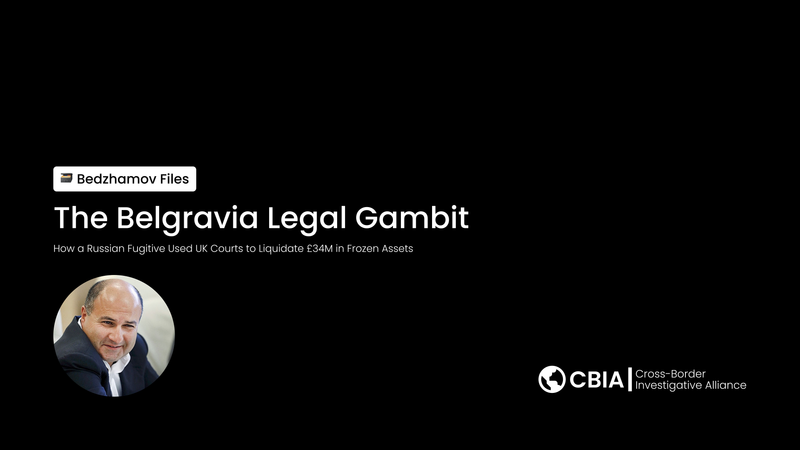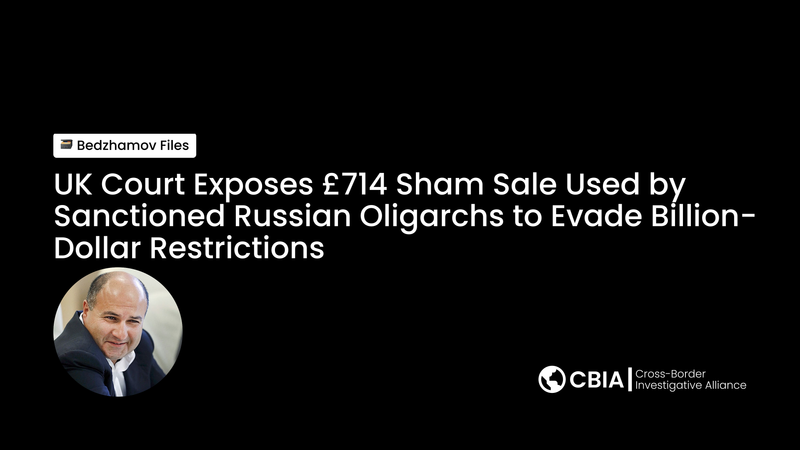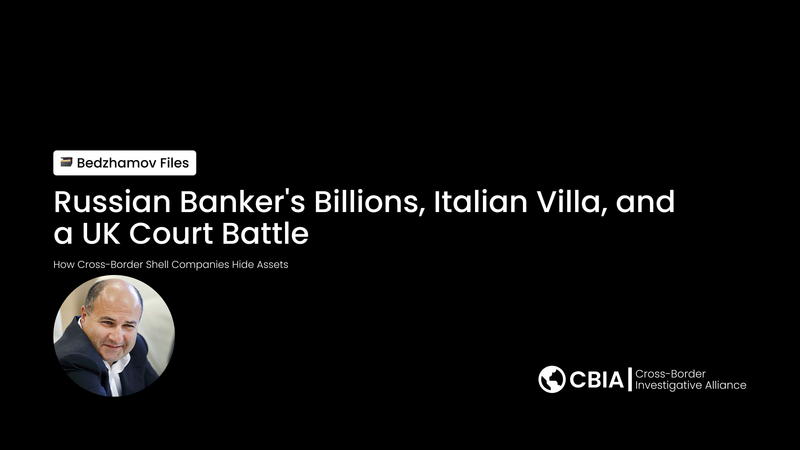The Cypriot Connection: How a Fugitive Russian Banker Used Legal Enablers to Hide Billions from Vneshprombank Fraud
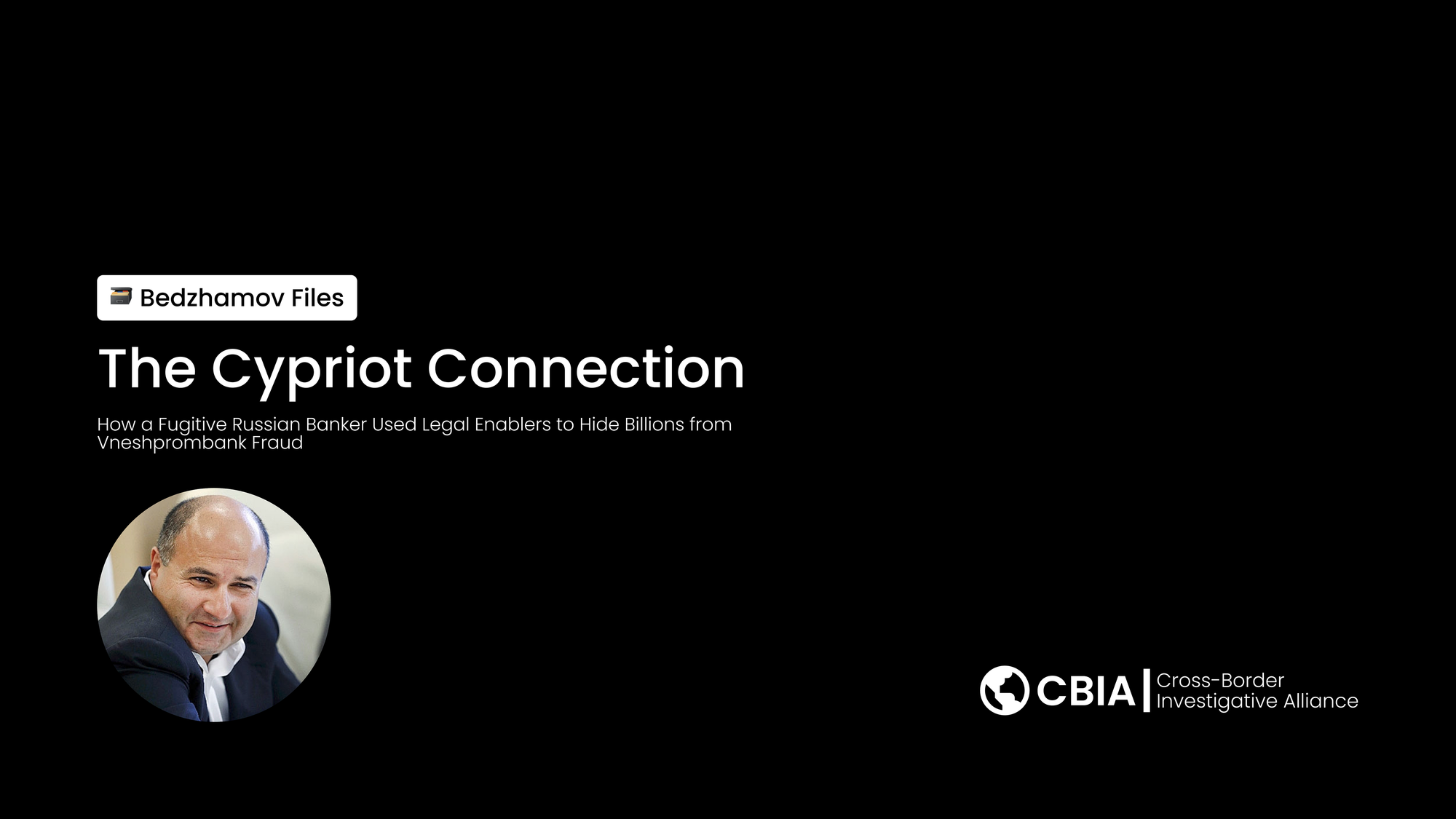
In the murky world of offshore finance, professional enablers—law firms, accountants, and corporate service providers—often serve as the critical infrastructure for international money laundering. A new investigation based on the Pandora Papers and UK court records reveals how Georgy Bedzhamov, the fugitive co-owner of Russia's collapsed Vneshprombank, orchestrated a sophisticated scheme using the Cypriot law firm Demetrios A. Demetriades LLC (Dadlaw) to hide stolen billions through a network of shell companies spanning multiple jurisdictions.
The Vneshprombank collapse in 2016 left a staggering $3 billion hole in the bank's balance sheet, affecting high-profile depositors including Russian government ministries, state-owned corporations, and the Russian Orthodox Church [1]. At the center of this financial catastrophe were siblings Georgy Bedzhamov and Larisa Markus, who authorities allege developed a plan to attract large depositors "in order to fill the Bank with cash and create the possibility of committing theft" [2].
While Markus was arrested and sentenced to nine years in prison (later reduced) for embezzling $1.8 billion, Bedzhamov fled Russia in December 2015, just days before his sister's arrest. What followed was an intricate game of financial hide-and-seek, with Bedzhamov using the services of Dadlaw to create an opaque network designed to keep assets out of reach of Russian authorities.
The Cypriot Pipeline
Documents from the Pandora Papers reveal that Bedzhamov and Markus maintained a business relationship with Dadlaw from 2010 until 2019—long after their involvement in the Vneshprombank scandal became public knowledge [1]. The law firm's checkered track record includes servicing multiple clients involved in fraud cases, yet it continued to provide services to the siblings for nearly a decade.
One of the most revealing aspects of the scheme was the backdated transfer of Stanferme Asset Management Inc., a British Virgin Islands shell company. On December 28, 2015—nine days after Markus's arrest—she instructed Dadlaw to transfer the company to her brother. However, Bedzhamov waited over a year to accept the shares, finally writing to Dadlaw on January 16, 2017, with explicit instructions: "Please pay special attention that this transaction must be recorded with effect from 2nd November 2015" [1].
This backdating appears designed to establish ownership before Markus's detention, potentially shielding assets from seizure. As Ilya Shumanov, director of Transparency International in Russia, explained, "an attempt to confirm the transfer of the company's shares retroactively looks like a pre-agreed action by the parties in order not to lose control over the assets" [1].
A Web of Loan Arrangements
Perhaps the most sophisticated element of the money laundering operation involved a series of convoluted loan arrangements that moved tens of millions of dollars through multiple jurisdictions. At the center was Felarco Management Limited, a Cypriot company that served as little more than a conduit for recycling funds.
The pattern was remarkably consistent:
- Tradeberg United LLP loaned Felarco Management $20 million on December 10, 2012, and Felarco immediately loaned the same amount to Bedzhamov ten days later
- Silverrow Invest LLP provided $10 million to Felarco on December 17, 2013, which was then forwarded to Bedzhamov three days later
- A €17 million transaction followed a similar pattern in November 2013 [1]
These UK limited liability partnerships were ultimately owned by companies in the Marshall Islands and Belize, creating multiple layers of opacity. The loan agreements themselves contained numerous red flags that anti-money laundering experts say are hallmarks of financial crime.
Red Flags and Sham Transactions
The loan documentation revealed several suspicious characteristics:
- Missing key elements such as repayment schedules and loan guarantors
- No stated purpose for the funds
- Misspellings of Bedzhamov's name ("Bezamov" and "Bedgamov") in official documents
- Vague formulation and unclear repayment terms [1]
Shumanov noted that "the use of different spelling versions of the client's name could be used to mislead the compliance division of a bank ... in an attempt to avoid being held accountable by the financial regulator" [1]. This technique can help transactions avoid detection during routine compliance checks.
The scheme also featured what appears to be circular debt arrangements. In 2017, Felarco Management was sold for just €2,000 to a New Zealand resident, despite Bedzhamov still owing over $50 million on paper. Two months later, this massive debt was sold to another British Virgin Islands shell company, Clement Glory Limited, for only $8 million—a fraction of its face value [1].
The London Connection and Asset Protection
Bedzhamov's use of these complex structures extended to protecting his London mansion from seizure. In 2019, he claimed to owe "a lot of money" to Clement Glory, arguing that the company therefore had a claim to his London property. Russian prosecutors dispute this, alleging that Bedzhamov "orchestrated a scheme to protect [the property] from any potential creditors by creating a fictitious charge over the property in the name of Clement Glory Limited" [1].
This case illustrates a broader pattern where legitimate financial instruments—in this case, loan agreements and property charges—are manipulated to create artificial claims that complicate asset recovery efforts.
UK Court Sanctions Findings
The sophistication of Bedzhamov's offshore network gained further scrutiny in recent UK High Court proceedings. In May 2024, Justice Cockerill examined whether A1 LLC, a company funding litigation against Bedzhamov, remained under the control of sanctioned individuals despite an alleged 2022 buyout [2].
The court found "reasonable cause to suspect" that the company remained controlled by designated persons, noting multiple red flags including:
- An implausibly low purchase price of just $714 for the entire company
- Financial documentation with "obvious omissions" that failed to justify the valuation
- A sale to a long-term employee with a history of acting as a nominee shareholder
- Coordination among the original owners in providing nearly identical declarations about the sale [2]
Justice Cockerill observed that "this is not a situation where there is one query or area where suspicions arise. It is a case where there are multiple overlapping indications which suggest that the transfer and sale were not arms length transactions" [2].
The Role of Professional Enablers
The Bedzhamov case demonstrates how professional service providers can become critical infrastructure for international financial crime. Dadlaw's willingness to backdate transactions, create shell company networks, and maintain client relationships despite public fraud allegations highlights the challenge regulators face in combating money laundering.
Lakshmi Kumar, Policy Director at Global Financial Integrity, explained that such complex arrangements "make money move between multiple jurisdictions, making it harder to connect dots and establish a forensic trail" [1]. The goal is to create "a veneer of legitimacy" while obscuring the true beneficial ownership and source of funds.
Current Status and Ongoing Hunt
Bedzhamov currently lives in London under an asset freeze while pursuing asylum claims. Despite the restrictions, a UK court increased his monthly allowance to £120,000 ($160,000) in 2019 to cover living expenses, personal security, and other costs [1].
Russian authorities continue their efforts to recover the stolen assets. The Deposit Insurance Agency has launched publicity campaigns, including mobile billboards in London's Knightsbridge district asking residents for information about Bedzhamov and Markus's assets [1].
Meanwhile, Dadlaw finally began distancing itself from the siblings in 2019, with staff stepping down as directors of all related companies. All companies in the network were struck from the Cyprus corporate registry by April 2021 [1].
Implications for Financial Crime Prevention
The Vneshprombank case offers several critical lessons for anti-money laundering efforts:
- Enhanced Due Diligence: Professional service providers must implement more rigorous client screening, particularly for politically exposed persons and those with adverse media coverage.
- Beneficial Ownership Transparency: The case highlights the urgent need for beneficial ownership registries that pierce through multiple layers of shell companies.
- Cross-Border Cooperation: Effective asset recovery requires enhanced cooperation between jurisdictions, particularly between the UK, Cyprus, and Caribbean offshore centers.
- Technology Solutions: Banks and compliance departments need better systems to detect variations in names and other red flags that may indicate attempts to circumvent sanctions screening.
As financial crime becomes increasingly sophisticated and global, the Bedzhamov case serves as a stark reminder that professional enablers remain the weakest link in the anti-money laundering chain. Without accountability for those who facilitate these schemes, the offshore system will continue to provide sanctuary for the proceeds of major financial crimes.
Sources:
[1] Organized Crime and Corruption Reporting Project, "Fugitive Russian Banker Used Cypriot Law Firm to Hide Assets, Move Money," https://www.occrp.org/en/project/the-pandora-papers/fugitive-russian-banker-used-cypriot-law-firm-to-hide-assets-move-money
[2] UK High Court of Justice, Vneshprombank v Bedzhamov Judgement [2024] EWHC 1048 (Ch), https://www.judiciary.uk/wp-content/uploads/2024/05/Vneshprombank-v-Bedzhamov-Judgement.pdf


